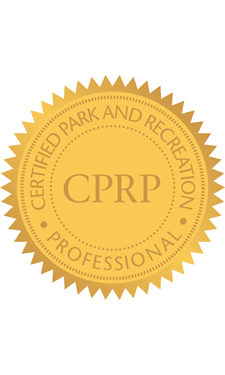 Here at NRPA, one of our primary directives is to provide extensive professional development opportunities. Whether a member is looking for additional certification or to expand their skill set, we do our best to offer classes, seminars and webinars that fit the bill for continued education. Implementing comprehensive, effective professional development within a department can be a daunting task requiring a significant investment of time and resources. However, the Chicago Park District (CPD) has been tweaking its educational opportunities for almost 20 years, recently arriving at a centralized plan intended to benefit all its employees.
Here at NRPA, one of our primary directives is to provide extensive professional development opportunities. Whether a member is looking for additional certification or to expand their skill set, we do our best to offer classes, seminars and webinars that fit the bill for continued education. Implementing comprehensive, effective professional development within a department can be a daunting task requiring a significant investment of time and resources. However, the Chicago Park District (CPD) has been tweaking its educational opportunities for almost 20 years, recently arriving at a centralized plan intended to benefit all its employees.
Back in the mid-1990s, CPD received grants to establish the Neighborhood First and Chicago Park District University (CPU) programs. These were conducted in partnership with Chicago State University to provide ongoing training for specific areas of expertise including landscape management, sports officiating and other disciplines. At the time, trainings were mandated, and while some employees believed CPU was very useful, others felt a lack of buy-in by all participants damaged the program’s efficacy. Nonetheless, CPU continued to evolve and became CAPRA-accredited, with a continued focus on employee development.
“Then, in the early 2000s, CPU was dismantled and our priorities kind of changed a bit,” Nikki Ginger, CPRP and professional development manager for CPD, explained in a recent NRPA webinar. “We didn’t really focus on accreditation and honestly kind of let our accreditation go.” It wasn’t until late 2009 that her agency began to reassess professional development and come up with a new plan that would truly support the educational needs of all employees.
Supporting a Workforce
CPD never abandoned training for its employees, but there was recognition of a “need for a centralized program led by one individual who would partner with managers across the community recreation department to ensure consistency and increase quality,” Ginger says. To accomplish this, the agency, under the direction of Chicago Mayor Rahm Emanuel and CPD General Superintendent and CEO Michael Kelly, adopted a strategic approach to retool its professional development offerings. “It started with a needs assessment that included interviews and a detailed survey,” Ginger continues. “This assessment — which hadn’t been done in recent history — asked employees what they would like out of their professional development program. It doesn’t focus solely on training, but also organization policy, mentorship and support. The data we gathered from both the interviews and survey helped create a foundation that we could rely on to launch the program.”
By no means was this a small undertaking — revamping a program to provide educational support to CPD’s 31,000 year-round, full-time employees, not to mention the thousands who are seasonally employed, took careful planning to address all the needs identified. But, says Ginger, the effort is well worth the reward. “Professional development is a worthy investment in your employees,” she says.
And, facilitating certification for CPD workers is an impactful sign to the community and the field at large of the value placed in park and recreation professionals. “Certification is the backbone of our professional development initiative,” Ginger says. Indeed, that spine is quite strong now — before implementing the new professional development protocols, the agency boasted only four Certified Park and Recreation Professionals (CPRPs) — today, there 120 and growing.
For those agencies looking to centralize or reboot professional development programs, Ginger has some tips:
- First, follow a recognized process for deployment: analyze, design, develop, implement and evaluate.
- Continuously repeat these initial steps.
- Schedule interviews with management staff to understand and document their pain points.
- If you’re currently mandating trainings beyond compliance, consider making them voluntary. Your facilitators and staff will thank you!
- Don’t skip the evaluation step!
- Have the end in mind: What do you want your professional development program to accomplish?
- Don’t be afraid to ask the hard questions when looking at your organization. Is the issue really employee skill or could it be something else?
“There are certainly many challenges to any new initiative, but that’s what makes the program so valuable,” Ginger says. “This was not an effort of one individual — it took a community of professionals. Does that mean if you have a small agency that it’s not possible to deploy a professional development program? Certainly not! Take small steps and set achievable goals.”
Samantha Bartram is the Associate Editor of Parks & Recreation Magazine.

